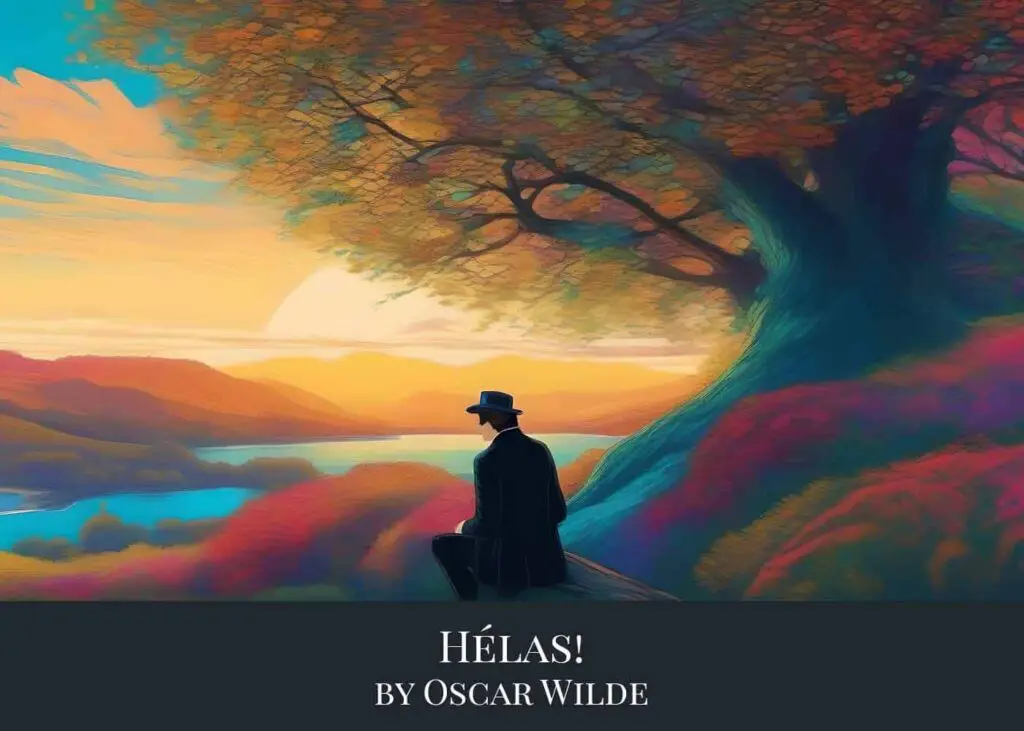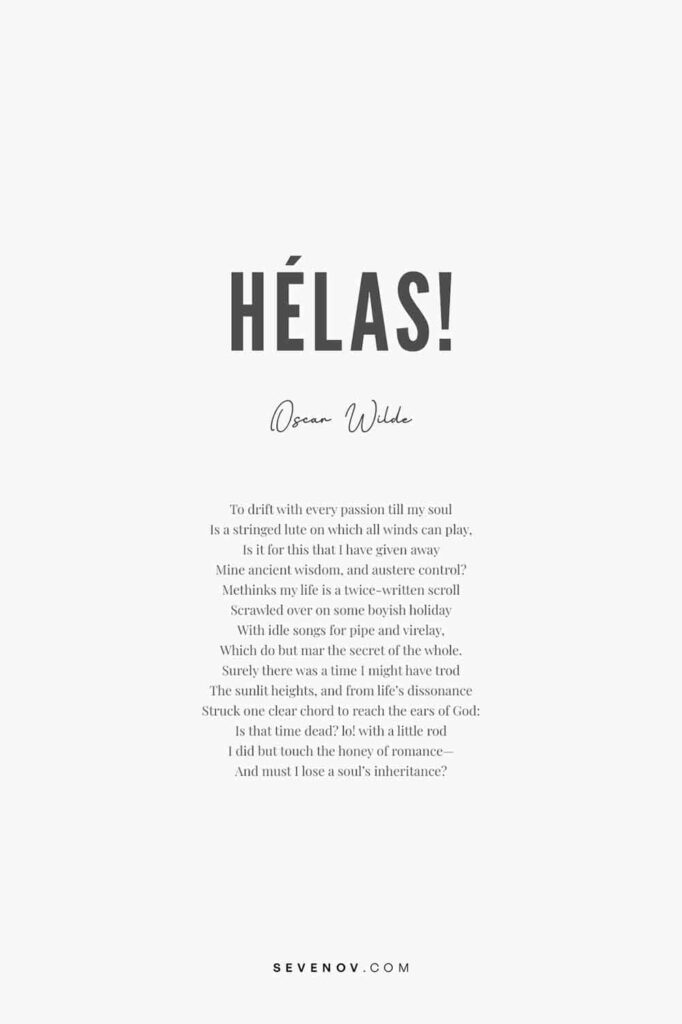
Hélas! by Oscar Wilde
“Hélas!” by Irish poet and playwright Oscar Wilde is a poignant poem reflecting on the tension between worldly desires and spiritual aspirations. The title, “Hélas!” is a French term expressing regret or sorrow, translating to “alas” in English. In this work, Wilde delves into the themes of temptation, the transient nature of youthful indulgence, and the soul’s yearning for deeper meaning. it can be found in Poems, Wilde’s first collection of poetry. Delve into Poems online book at PageVio for an enriching literary experience.
1. The Poem
To drift with every passion till my soul
Is a stringed lute on which all winds can play,
Is it for this that I have given away
Mine ancient wisdom, and austere control?
Methinks my life is a twice-written scroll
Scrawled over on some boyish holiday
With idle songs for pipe and virelay,
Which do but mar the secret of the whole.
Surely there was a time I might have trod
The sunlit heights, and from life’s dissonance
Struck one clear chord to reach the ears of God:
Is that time dead? lo! with a little rod
I did but touch the honey of romance—
And must I lose a soul’s inheritance?

Download Hélas! by Oscar Wilde Poster
Size: 8″ x 12″ (2:3 ratio)
Format: PDF
Note: Actual poster background color is white. For the sample poster, the background is made gray for illustration purpose.
2. Hélas! Analysis
This poem reflects deep introspection, regret, and a yearning for purpose. Let’s break it down:
“To drift with every passion till my soul / Is a stringed lute on which all winds can play,”
The speaker describes a soul swayed by every fleeting passion, much like a musical instrument (a lute) that can be played upon by every gust of wind. This indicates a lack of steadfastness or resolution.
“Is it for this that I have given away / Mine ancient wisdom, and austere control?”
The speaker regrets trading in his “ancient wisdom” and self-control for this drifting, malleable state. There’s a sense of having lost something valuable in exchange for momentary passions.
“Methinks my life is a twice-written scroll / Scrawled over on some boyish holiday”
The speaker sees his life as a scroll that has been written upon twice: once with profound wisdom and a second time with frivolous, childish scribbles that obscure the original writing. This portrays life choices he now sees as immature or impulsive.
“With idle songs for pipe and virelay, / Which do but mar the secret of the whole.”
The “idle songs” symbolize superficial pursuits, and these songs are marring or obscuring the deeper, truer essence or “secret of the whole” life.
“Surely there was a time I might have trod / The sunlit heights, and from life’s dissonance”
The speaker reminisces about a time when he could have achieved greatness or clarity (“sunlit heights”).
“Struck one clear chord to reach the ears of God:”
Rather than the cacophony of his present life, he could have lived in such harmony and purpose that his life would resonate like a clear, singular note reaching up to God.
“Is that time dead? lo! with a little rod / I did but touch the honey of romance—”
The speaker questions if the opportunity for such a harmonious life is now gone. The “little rod” touching “the honey of romance” might symbolize fleeting pleasures or temporary dalliances that distracted him.
“And must I lose a soul’s inheritance?”
Concluding with this rhetorical question, the speaker grapples with the fear that his choices have caused him to lose his soul’s true purpose or destiny (“inheritance”).
Overall, the poem is a poignant reflection on life choices, regrets, the trade-offs between fleeting passions and deeper, spiritual pursuits, and the yearning to reconnect with one’s true purpose.
3. Conclusion
If “Hélas!” and its introspective journey through life’s choices and the quest for authentic purpose speak to you, explore our collection of Oscar Wilde’s poetry for more introspective verses.




